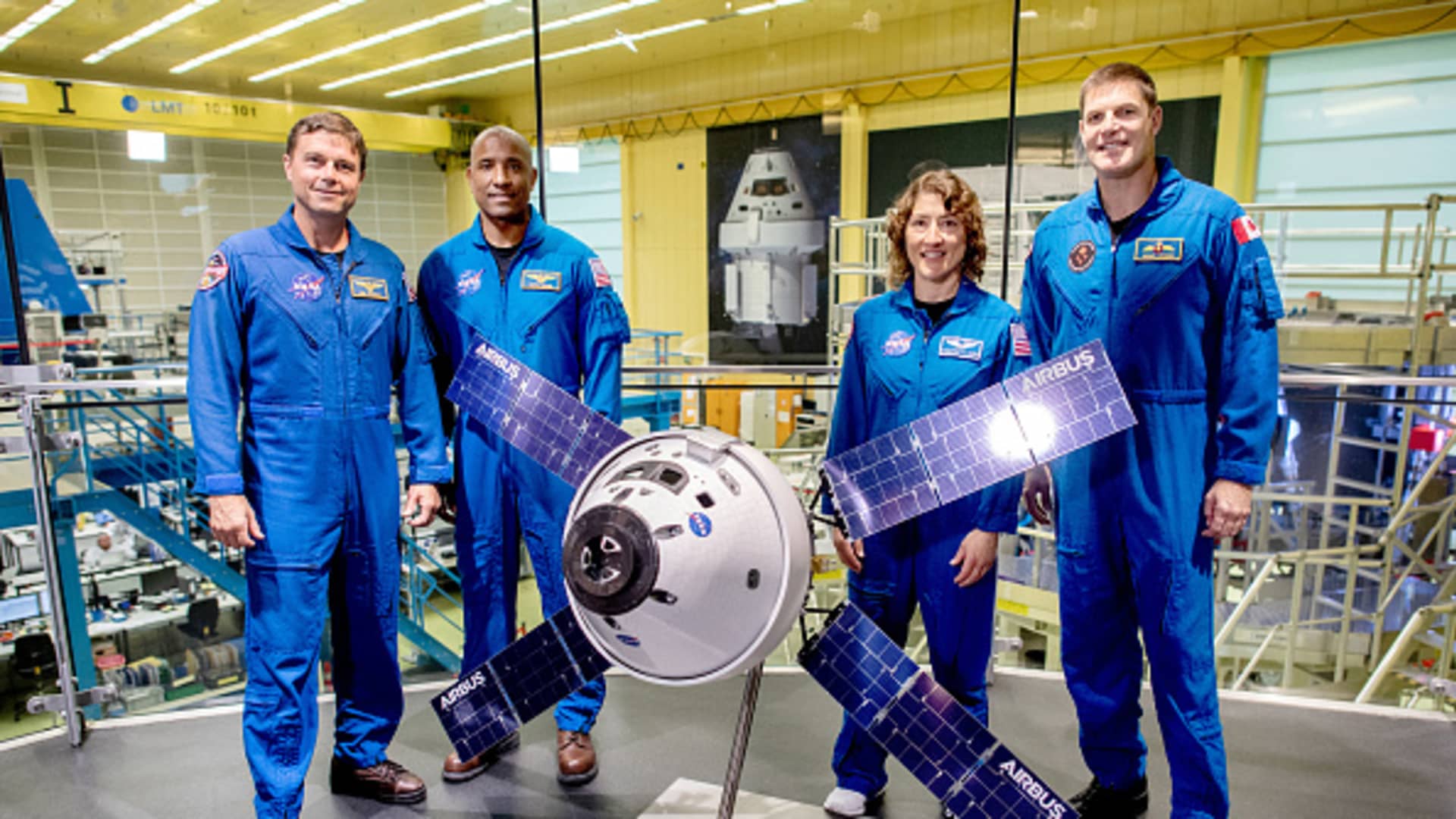
The crew members of the Artemis 2 mission of the U.S. space agency NASA, left to right, Reid Wiseman Victor Glover, Christina Koch and Jeremy Hansen, stand at a press event in the ArianeGroup building.
Hauke-Christian Dittrich | Picture Alliance | Getty Images
NASA is pushing back the schedule for upcoming missions of its flagship Artemis lunar program by about a year as the agency’s contractors work to finish technology needed to return U.S. astronauts to the moon’s surface.
“We are adjusting our schedule to target Artemis 2 for September of 2025 and September of 2026 for Artemis 3, which will send humans for the first time to the lunar south pole,” NASA Administrator Bill Nelson said during a press briefing on Tuesday.
Artemis 2 — with a four-person crew, which NASA announced last spring — was previously planned to launch in November, while Artemis 3 had been targeting December 2025.
The pair of missions are set to follow the uncrewed Artemis I mission that flew in 2022. The Artemis program represents a series of missions with escalating goals, aiming to return astronauts to the lunar surface for the first time since the Apollo era.
Sign up here to receive weekly editions of CNBC’s Investing in Space newsletter.
Nelson’s comments confirm reporting by CNN and Reuters that NASA would be pushing out the schedule for the program. Delays to Artemis have long appeared likely, especially after NASA’s Inspector General detailed challenges with crucial infrastructure of the program in a report late last year.
Artemis relies on a variety of vehicles and equipment built by companies including Boeing, Northrop Grumman, Lockheed Martin, Elon Musk’s SpaceX and Jeff Bezos’ Blue Origin. Axiom Space and RTX’s Collins Aerospace are also developing lunar spacesuits to support the program.
But many of those companies still face obstacles, whether with development or technology setbacks, such as problematic batteries in Lockheed’s Orion capsule and issues demonstrating in-space refueling with SpaceX’s Starship. Already, NASA’s Artemis effort has been delayed for years, with the program running billions over budget.
NASA has spent more than $42 billion since 2012 to develop and build the systems behind the Artemis program, with the agency’s Inspector General noting that the initial missions will cost $4.2 billion per launch.

Don’t miss these stories from CNBC PRO:







